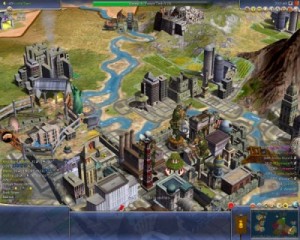Posts tagged theories
Constructivism and Its Application to Game-Based Learning Activities
0 Gaming is an activity enjoyed by many students, and when used for educational purposes, games can improve student motivation towards learning, particularly when used in the creation of constructivist learning opportunities. Applying constructivist principles to educational game-based learning activities yields an approach that puts students in the role of active learners and content creators.
Gaming is an activity enjoyed by many students, and when used for educational purposes, games can improve student motivation towards learning, particularly when used in the creation of constructivist learning opportunities. Applying constructivist principles to educational game-based learning activities yields an approach that puts students in the role of active learners and content creators.
I’ve written a paper (embedded below) which outlines the rationale for using games for learning purposes, and proposes a problem-based constructivist gaming model for educational game design. Aspects of the model include stating well-defined goals and problems, promoting student hypotheses for solutions to the problems, encouraging experimentation in the game world, delivering prompt feedback, and allowing students to reflect on their learning experiences. Simulations and virtual worlds are particularly appropriate game genres for constructivist activities. The games Civilization, Hephaestus, and Second Life are explained with the problem-based gaming model. A particular focus is placed on K-12 learning environments, illustrating how teachers may use these games to support young students’ constructivist learning.
